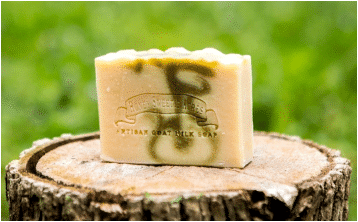What is special about Milk Soaps?
There are many ways to make soap, with many different base ingredients. Most soaps begin their life with water, used to dissolve the required lye that will saponify the chosen oils in a soap recipe.
Soap can be made from other liquids too, including varieties of teas, floral plant infusions in water, coconut milk, almond milk, and multiple animal milks….including cow and reindeer! But why? And what are the advantages of goat milk soap?
History of Milk Soap
Since the age of Cleopatra, milk has been revered as a cosmetic ingredient. It has been praised through the centuries as a softener for sensitive skin. Milk makes soap richer, creamier and less drying to the skin overall.
Historically, we do not know when milk was first added to “cosmetics”, yet it was used by many different cultures for thousands of years. Chemically speaking, milk is a lipoprotein. A lipid is an organic substance that is not soluble in water and is usually somewhat greasy to the touch. Lipids help to seal in moisture.
Why Goat Milk Soap?
The composition of milk can vary drastically among animal species. Even within the same species, there are individual differences. As we explain on the website, Nigerian Dwarf goat milk is much higher in protein and butterfat than any other dairy goat breed, which makes it ideal for a highly moisturizing soap.
Since our soaps are made with goat milk, we are often asked if we need preservatives to protect it from becoming stale or rancid. Correctly made, goat milk soaps have no need for preservation as there is no time limit on the curing process. As soap ages, it becomes even more gentle and effective.


